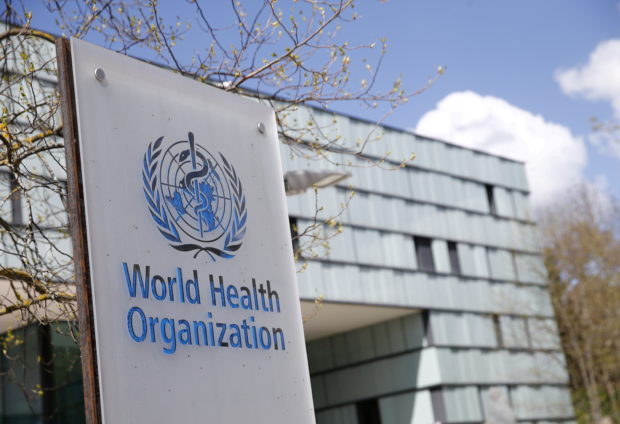Studies under way to understand new COVID-19 variant – WHO

A logo is pictured outside a building of the World Health Organization (WHO) during an executive board meeting on an update on the coronavirus disease (COVID-19) outbreak, in Geneva, Switzerland, April 6, 2021. (File photo from REUTERS)
GENEVA — While polymerase chain reaction (PCR) tests can detect infection with Omicron, studies are looking to whether the COVID-19 variant of concern has any impact on other test types, the World Health Organization (WHO) said on Sunday.
“The widely used PCR tests continue to detect infection, including infection with Omicron, as we have seen with other variants,” the WHO said in an update on what is known so far about the new variant. “Studies are ongoing to determine whether there is any impact on other types of tests, including rapid antigen detection tests.”
ADVERTISEMENT
The WHO on Friday declared Omicron, first detected earlier this month in southern Africa, to be a variant of concern.
The classification put Omicron into the most troubling category of COVID-19 variants, along with the globally dominant Delta, and its weaker rivals Alpha, Beta and Gamma.
Omicron spread across the globe on Sunday, shutting borders and renewing curbs as the European Union chief said governments faced a “race against time” to understand the strain. (See related stories on this page and Page A2 and in World, Page B4.)
The variant has cast doubt on global efforts to battle the pandemic due to fears that it is highly infectious, forcing countries to reimpose measures many had hoped were a thing of the past.
‘Not yet clear’
In its update, the WHO said it was “not yet clear” whether Omicron spreads more easily from person to person, or whether infection with the variant causes more severe disease compared to other strains.
“There is currently no information to suggest that symptoms associated with Omicron are different from those from other variants,” the United Nations health agency said.
While preliminary evidence suggests there may be an increased risk of people who previously had COVID being reinfected with Omicron, information is currently limited.
The WHO said it was working to understand the potential impact of the variant on existing countermeasures, including vaccines.
As for treatments, the organization said corticosteroids and IL6 receptor blockers would still be effective for managing patients with severe COVID-19—while other treatments would be assessed to see if they are still as effective against Omicron.
ADVERTISEMENT
The WHO has said studies into various aspects of the new variant would take several weeks to reach conclusions.
“[The] WHO is coordinating with a large number of researchers around the world to better understand Omicron,” it said. “More information will emerge in the coming days and weeks.”
Subscribe to our daily newsletter
Read Next
2 Pharmally execs put behind bars
EDITORS’ PICK
MOST READ
Don’t miss out on the latest news and information.
View comments


